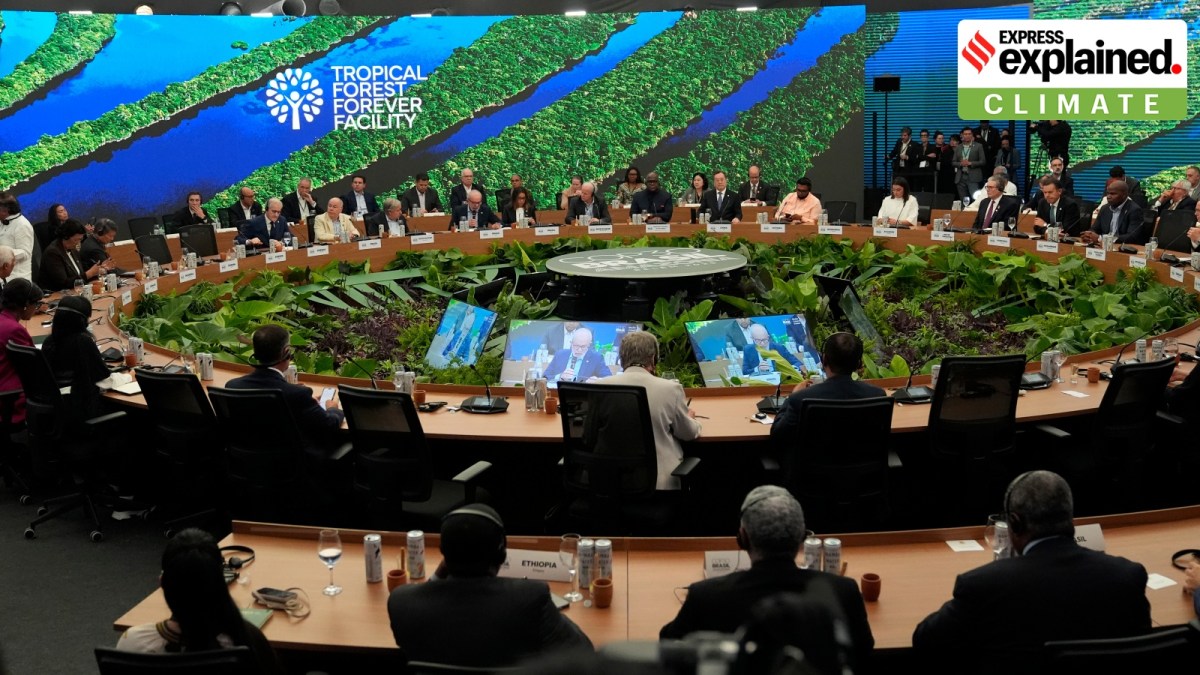New fund to protect world’s tropical forests: What is the TFFF, and what are the concerns about it?
Speaking at the fund’s launch event on November 6, Brazil’s President Luiz Inácio Lula da Silva described the TFFF as 'an unprecedented initiative'. He also said that 'for the first time, Global South countries will have protagonism in the forest agenda'

In a bid to conserve the world’s tropical forests, a new fund was launched at a high-level event last week on the sidelines of the COP30 climate summit in Belém, Brazil. Known as the Tropical Forest Forever Facility (TFFF), the fund aims to raise and invest $125 billion, channelling returns to developing countries that conserve their forests.
Speaking at the fund’s launch event on November 6, Brazil’s President Luiz Inácio Lula da Silva described the TFFF as “an unprecedented initiative”. He also said that “for the first time, Global South countries will have protagonism in the forest agenda”.
While Brazil expects the TFFF to transform the world’s approach to environmental conservation, several experts have raised concerns about how it will work in practice.
What is the TFFF?
The TFFF is an investment fund designed as a permanent, self-financing vehicle through which net returns will be awarded to up to 74 developing tropical forest countries for keeping their existing old-growth forests intact.
The fund will look to raise $25 billion from wealthy governments and philanthropists, and an additional $100 billion in private investment. Then, the amount will be invested into a mixed portfolio of investments, including public and corporate market bonds, with annual returns used as a reward to tropical forest nations for conserving their forests. Note that payments to countries will be based on satellite remote sensing data that track forest canopy cover annually in a low-cost and transparent manner.
So far, Brazil has announced a $1 billion contribution; Colombia has pitched in with $250 million; Indonesia is contributing $1 billion; the Netherlands $5 million; Norway $3 billion over a decade; and Portugal 1 million euros.
Why has the TFFF been launched?
One of the primary reasons for deforestation is that there is more global market value for dead forests than when they are alive. For instance, the benefits of standing forests, such as temperature reduction and wildlife habitat, are taken for granted. Meanwhile, clearing the land for monocultures of crops like soy is financially incentivised.
The TFFF is designed to change this and pay for the conservation of the world’s major tropical forests, which provide a range of ecosystem services, including carbon storage. Put simply, the fund will help landowners to conserve forests by ensuring that the value they bring as standing forests is more than from cutting them down.
Marina Silva, Brazil’s Minister of the Environment and Climate Change, during the launch event, said, “The launch of the TFFF at COP30 marks a turning point in the history of tropical forest conservation. For the first time, we have a global mechanism that recognises the value of forest ecosystem services and offers permanent incentives for their preservation.”
What are the concerns?
One of the biggest criticisms of the TFFF is that it is too vulnerable to the volatility of financial markets, as it plans to invest in bonds in developing nations that have historically been prone to fluctuations. For instance, the TFFF may not be able to pay returns to countries if markets crash like they did during the COVID-19 pandemic, or the 2008-09 financial crisis.
Another concern is that the fund dilutes the legal obligation of developed countries to pay their fair share of nature finance. That is because the TFFF is not officially part of the UN Framework Convention on Climate Change (UNFCCC), and is not subject to the same responsibilities that govern the UN climate negotiations, where the onus falls on developed countries.
Liane Schalatek, a climate finance expert, told Carbon Brief, “While we’re trying to have a discussion about protecting the provision of public finance from developed to developing countries… TFFF is almost contributing to a further undermining of the financial mechanism of the UNFCCC and the Paris Agreement.”